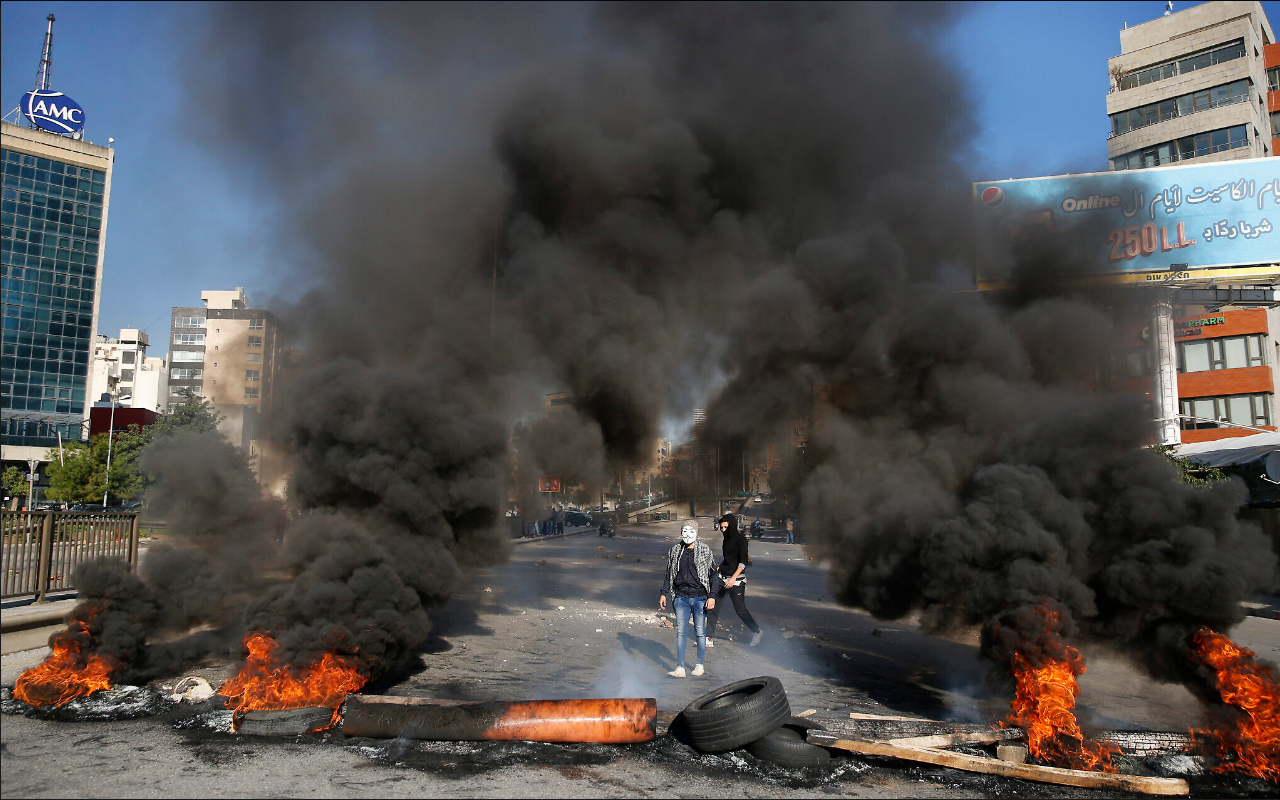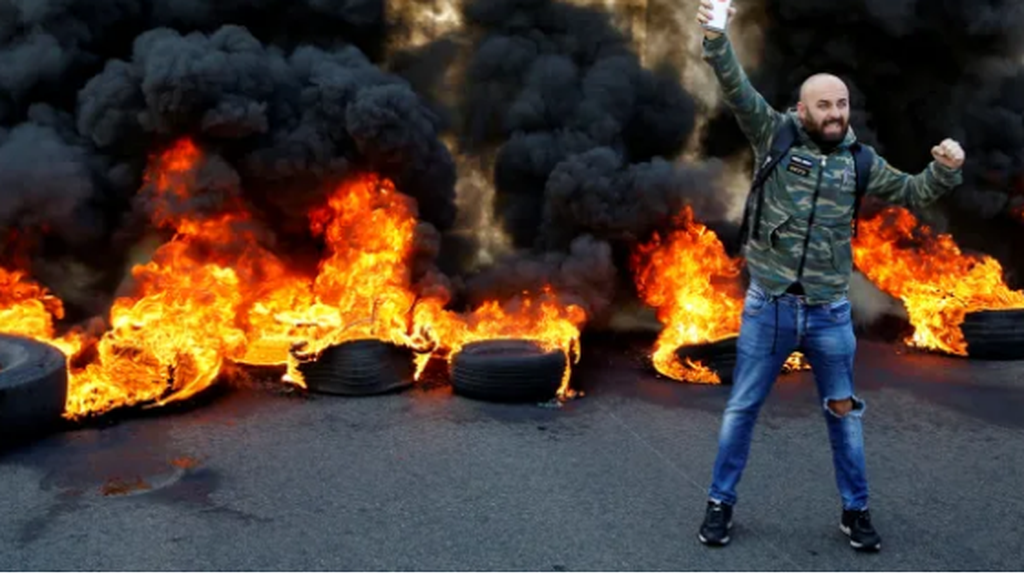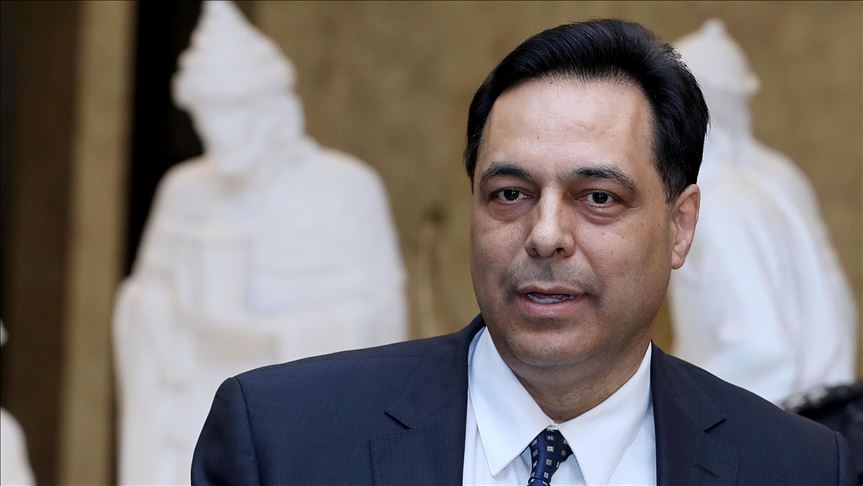Lebanese security forces lobbed tear gas at protesters who responded with rocks outside the country's central bank Tuesday, a violent turn after demonstrators returned to the streets following a weekslong lull.
The violence outside the central bank came as protesters resorted to blocking roads around the capital to express their impatience at a ruling elite they say has failed to address the economy's downward spiral.
Calm had prevailed since the designation of Hassan Diab as prime minister in mid-December. He has so far failed to form an emergency government amid political divisions and jockeying for power. The lull was also partly due to the holidays followed by soaring regional tensions between the U.S. and Iran that eclipsed the protesters in Lebanon and Iraq demanding sweeping political change.
Clashes at the bank began late Tuesday after security forces arrested a few of the protesters. It was not immediately clear why they were arrested. Local media said the protesters had removed metal barriers erected around the central bank.
The demonstrators accuse the central bank's governor of financial policies that have worsened Lebanon's liquidity crunch.
The country is facing its worst economic crisis in decades. The local currency has lost over 60% of its value in just the past few weeks, while sources of foreign currency have dried up. Meanwhile, banks have imposed informal capital controls limiting the withdrawal of dollars and foreign transfers in the country, which relies heavily on imports of basic goods.
Panic has set in among residents who fear their deposits are in danger. Protests have taken place inside commercial banks over the last few weeks as depositors tried to access their accounts.
But Tuesday night's violence was the first outside the central bank. Security forces fired several rounds of tear gas while protesters lobbed rocks and fireworks. The pitched street battles were aired live on local TV stations. Some protesters smashed windows of at least two commercial banks nearby using metal bars.
4 View gallery


Anti-government protesters burn tires during ongoing protests after weeks of calm in Beirut
(Photo: AP)
"We are worried about losing our savings ... Lebanon is not an easy country to save in," said Riva Daniel, 40 years old, who was among those protesting outside the central bank since earlier in the day. "We don't trust the banks here anymore."
Protesters returned to the streets Tuesday blocking several roads around the capital, Beirut, and other areas of the country in the south and north. They burned tires and blocked several main highways leading to the capital from the south, east and north, bringing traffic to a standstill. School and university students took part in some of the protests and hundreds marched down main highways, raising Lebanese flags and blasting rallying songs through loudspeakers.
Samer al-Khoury, a 29-year-old protester, said the protesters were giving the politicians 48 hours to form a new government.
"We need solutions," he said. "The street is angry because some people are poorer than others; some people are dying in hospitals; some people don't have food on their table."
4 View gallery


Anti-government protesters burn tires during ongoing protests after weeks of calm in Beirut
(Photo: AP)
Rabie al-Zain, an activist protesting in Jal el-Dib, north of Beirut, said the rallies are a reminder to the rulers that the reasons for their protests are still here. "Today we add the students to the revolution - those who will handle the country when the current rulers will go to the dustbin of history," he said.
In the northern city of Tripoli and in Akkar province, protesters sat in the streets and blocked several roads with burning tires or bricks. In Sidon, thousands of protesters rallied in a central square of the southern city. In the eastern city of Zahle, hundreds rallied by nightfall against the current political class.
In the afternoon, hundreds of protesters in Beirut marched to the house of the recently designated prime minister.
Three months of nationwide protests have failed to pressure politicians to form a new government to institute drastic reforms. Prime Minister Saad Hariri resigned in late October, shortly after the protests began.
Lately, protesters have also taunted politicians who showed up in shopping malls or restaurants, sometimes chasing them out of public places and decrying their failure to address the economic crisis.
First published: 23:04, 01.14.20



